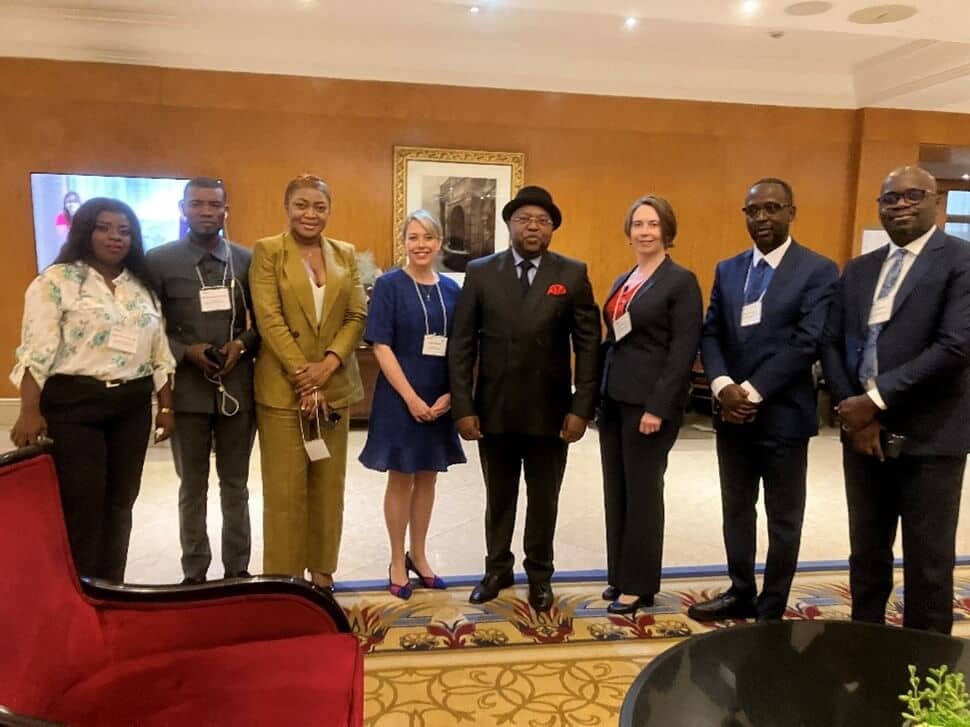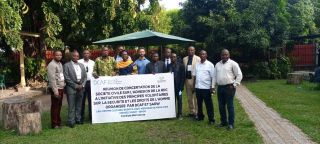Reflections from the 2023 Annual Plenary Meeting of the Voluntary Principle Initiative (VPI)

The green energy/just transition, mandatory human rights due diligence legislation, the demand for critical minerals, human rights-compliant security arrangements, and the urgent need to empower vulnerable groups and their defenders: these were just a few of the themes that dominated the discussions at this year’s annual plenary meeting of the Voluntary Principles Initiative (VPI). The DCAF-ICRC Partnership was active in London from 23-26 May, promoting our project and Security and Human Rights Toolkit, and reconnecting with companies, governments and civil society organisations (CSO) on implementation of the Voluntary Principles on Security and Human Rights (VPs).
DCAF moderated a panel featuring lessons learned from the SHRIM project on promoting multistakeholder security and human rights risk identification and mitigation in Colombia, led by DCAF’s partner, the Comité Minero y Energético (CME). The project was developed in collaboration with the CSO Centro Regional de Empresas y Emprendimientos Responsables (CREER), the Colombian Ministry of Defence and the company Frontera Energy.
The plenary meeting also offered panel opportunities to share good practices for companies on structuring their arrangements with public institutions and interactions with armed forces.
The government of the Democratic Republic of Congo - a country on the frontline of critical minerals extraction – was accepted as an Engaged Government member of the VPI. This is an important culmination of a three-year VPs engagement process facilitated by Congolese experts and civil society and DCAF. The Government of Mozambique has also begun engaging in VPI membership and participated actively in the plenary meeting, demonstrating important progress in expanding awareness of the VPs. Natural resource producer countries are taking ownership and are more engaged in the VPI than ever before.
The plenary meeting also highlighted the impacts and results achieved by in-country working groups, key to opening doors to more government engagement and more meaningful and constructive interactions between companies and communities. Mozambique-based NGO CDD participated in the plenary meeting as the leader of the regional working group in Cabo Delgado province and the national working group in Maputo, sharing progress on engaging companies.
Finally, the plenary meeting was an important opportunity for peer learning and sharing of tools and guidance for VPs implementation. Expert members within the VPs realm have really built up a comprehensive chest of guidance tools for companies - there’s simply no lack of proven, effective, practical implementation support. Thanks to the high turnout at the plenary meeting, the DCAF-ICRC Partnership promoted its flagship guidance, the Security and Human Rights Toolkit, with many companies to support more human rights-compliant engagements with host governments, public and private security, and communities.
Looking towards the year to come, the Government of the United States takes on the Chairmanship of the VPI. DCAF-ICRC remains committed to supporting VPs implementation and looks forward to working with the US and all concerned stakeholders to meaningfully address remaining concerns related to security management in extractive operations.




